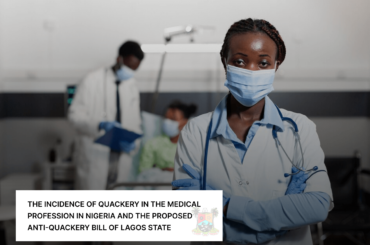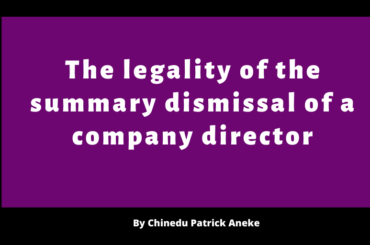Is The proposed “Promotion of Proper Human Sexual Rights and Ghanaian Family Values” in Accordance with Article 21 of the 1992 Fourth Republican Constitution?
Morality refers to the principles a person believes in concerning the distinction between right and wrong or good and bad behaviour. It is still largely subjective, and is strongly influenced by interpersonal factors, such as family, peers, and culture. As a result of this there is a need for central guiding principles that have been mutually agreed on, law.
The law is the system of rules which a particular country or community recognizes as regulating the actions of its members and which it may enforce by the imposition of penalties.
A crime is an action or omission which constitutes an offence and is punishable by law.
Crimes are largely related to violations that may interrupt the quality of another person’s life, namely human rights violations, and rules that keep order in our everyday life, such as traffic regulations.
Even though there may sometimes easily be a general consensus on certain subjective views, such as murder,other laws unfortunately are less black and white and more complicated and sometimes seemingly harmless laws may infringe on the rights of certain groups of people leaving them marginalized and at a great disadvantage in society.
Article 21 of the Constitution touches on the General Fundamental Freedoms, these include the right of free speech and expression, freedom of thought, conscience and belief, freedom to practise any religion, freedom of assembly including taking part in processions and demonstrations, freedom of association, right to information and freedom of movement.
These rights however can be restricted for several reasons, which include the imposition which is required in the interest of defence, public safety, public health or the running of essential services and also required for the purpose of safeguarding the people from propaganda which encourages disrespect for the nation, the symbols or incites hatred against other members of the community.
Due to the inability to predict the future, these provisions are largely discretionary and thus are open to interpretation. This dissection is very relevant in present day political climate with the recent presentation of a proposed bill criminzalizing LGBT+ activity and queer activism in Ghana tiitled “Promotion of Proper Human Sexual Rights and Ghanaian Family Values”.
Currently, homosexuality has not specifically been criminalized but its illegality has been inferred by Section 104 of the Criminal Code, 1960 (Act 29). It reads
“1. Whoever has unnatural carnal knowledge—
- of any person of the age of sixteen years or over without his consent shall be guilty of a first degree felony and shall be liable on conviction to imprisonment for a term of not less than five years and not more than twenty-five years; or
- of any person of sixteen years or over with his consent is guilty of a misdemeanour; or
- of any animal is guilty of a misdemeanour
2. Unnatural carnal knowledge is sexual intercourse with a person in an unnatural manner or with an animal”
Since unnatural carnal knowledge has been defined vaguely, criminalizing homosexuality because of it should logically be based on the premise that all hetrosexual couples are not engaging in said unnatural carnal knowledge and all homosexual couples intend to engage in some sort of sexual activity.
Additionally, if the proposed law “Promotion of Proper Human Sexual Rights and Ghanaian Family Values” was really only about morality, then adultery would be a crime as well.
Adultery, which is a clear violation of a promise often made legally and religiously, has far more damning consequences mentally and socially to individuals and family dynamics than two honest consenting adults being sexually liberated.
Abuse is often cited as a reason why homosexuality should be a crime, however, abuse is not specific to a particular sexuality. A person choosing to abuse another has nothing to do with their sexuality and everything to do with their morals and beliefs. One involves an abuse of power, the other is about two consenting adults.
Religion is another reason often informally cited. However, that would be assuming everyone in the country shares the same beliefs and should be subjected to the same religious values which is an inaccurate reflection of the multicultural nature of Ghana.
If law was really about preserving morality, adultery would be a crime as well as it is a clear and non-debatable violation of a promise made legally and religiously. Adultery destroys relationships, family dynamics and actually causes a lot more problems than homosexuality between two consenting adults does.
There will never be a clear right or wrong answer to what is right and what is wrong, simply because “right” and “wrong” are just manifestations of our consciousness.
And the truth is, this issue is is a much bigger issue than homosexuality.
When laws are imposed not based on what is best for the general public but rather for those who hold power to further their personal agendas by imposing their views on the unsuspecting public, it is dangerous for all of us. If it can be done to one marginalized group, it can be done to another and eventually our laws will become autocratic. An injustice to one is an injustice for all.
For a truly democratic environment to prevail, we must not be ignorant of the political and legal happenings in the country. We must educate ourselves in order to hold our leaders accountable. We must remember that democracy is not about allowing our leaders to dictate how we live our lives but giving them the authority and responsibility to create and implement a fair and enjoyable climate for all of us.




